
In this assignment, I choose two reports from different platforms which focus on the latest hot airline crash event, CNN and BuzzFeed News. These two news media are the hot spots in the current US news, after the 2016 presidential election.
The article I choose from CNN is Tears and tributes flood the Ethiopian Airlines crash site.

The report I preferred to analysis from BuzzFeed News was 157 People Were Killed when An Ethiopian Airlines Flight Crashed After Takeoff.
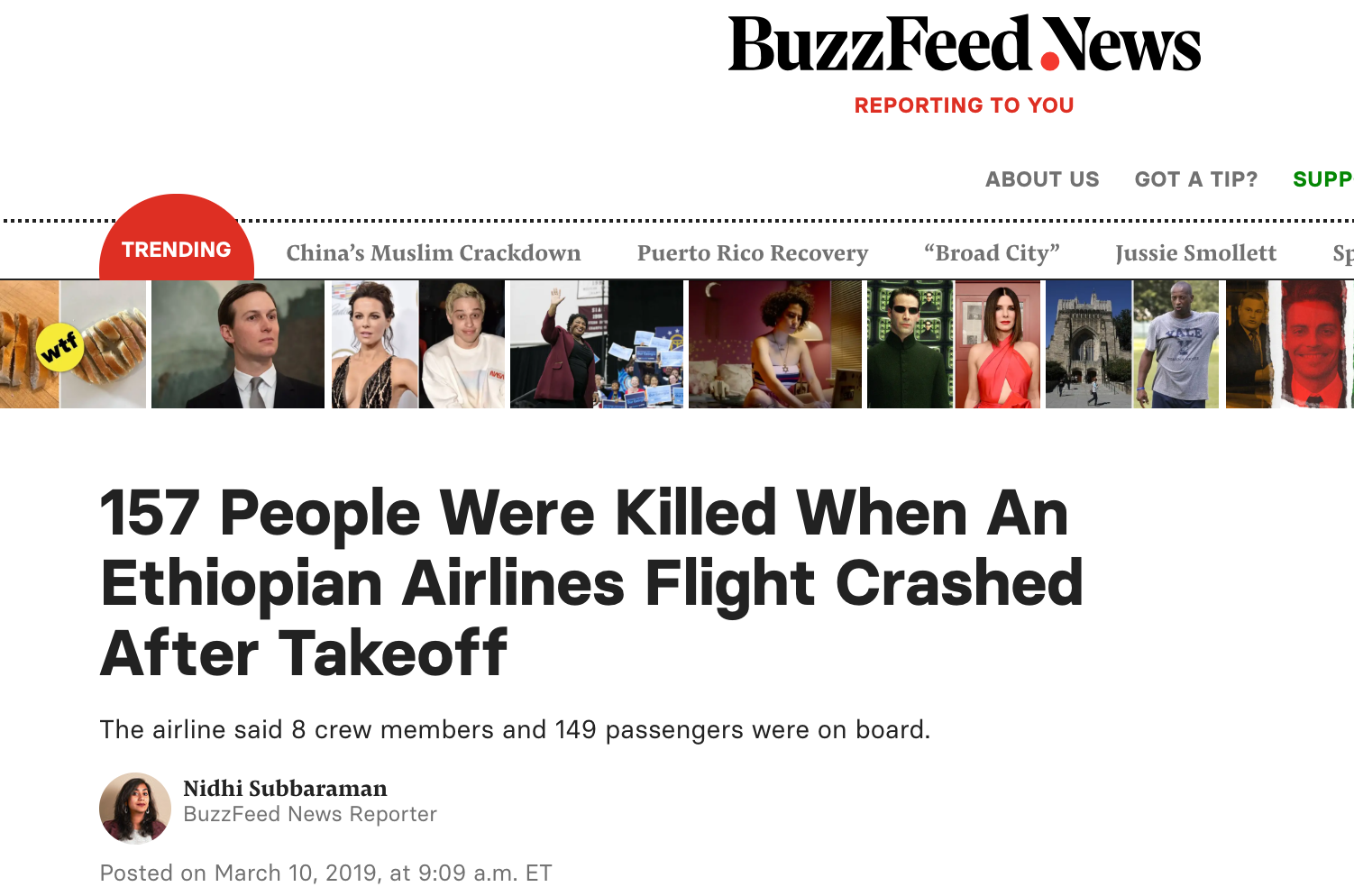
Biographical survey

CNN reviewing:
Cable News Network(CNN) is an American news-based pay television channel and it is the first television channel in America and the first to provide 24-hour news coverage(Anderson et.al,2014).
CNN was founded by American media proprietor Ted Turner in 1980. At first, CNN has many bureaus in some big cities among the US, such as New York City and San Francisco, with only one headquartered in Atlanta(Allen, 2016).
In 1982, CNN launched a new channel named CNN2 and later changed its name into HLN in 1983. This special channel combined with the feature of news broadcasting and specialized feature programs to broadcast headline News. And they created a new form named “ headline news wheel” to cast 24 hours which turned to be a big success.
In 2018, it remains the Nation’s no.1digital source.
Buzzfeed News reviewing:

Buzzfeed is an American news website and it is a kind of new media born in the internet age.
In 2006, Jonah Peretti founded BuzzFeed in New York City as a virtual lab focus on the hot topic online. It preferred to post viral content to attract a number of audiences in a short time. In this aspect, the most content of the website was for entertainment and sometimes BuzzFeed was accused of using other author’s content without permission from social media platforms such as Twitter and Facebook(Josh, 2013).
However, in the late of 2011, Ben Smith was hired as editor-in-chief and he decided to add more serious reports and long-form articles to change the company image(Mick, 2014). So in most of the times, BuzzFeed believed that the real start of their news careers is from 2012 and now it is said to be the fast-growing on the internet with more than 40 million users a month(Josh, 2013).
User analysis
CNN: educated people
The report in 2018 from the CNN press room said that CNN remains the first digital source in 2018 around the US with 122 million visitors from multimedia platforms.
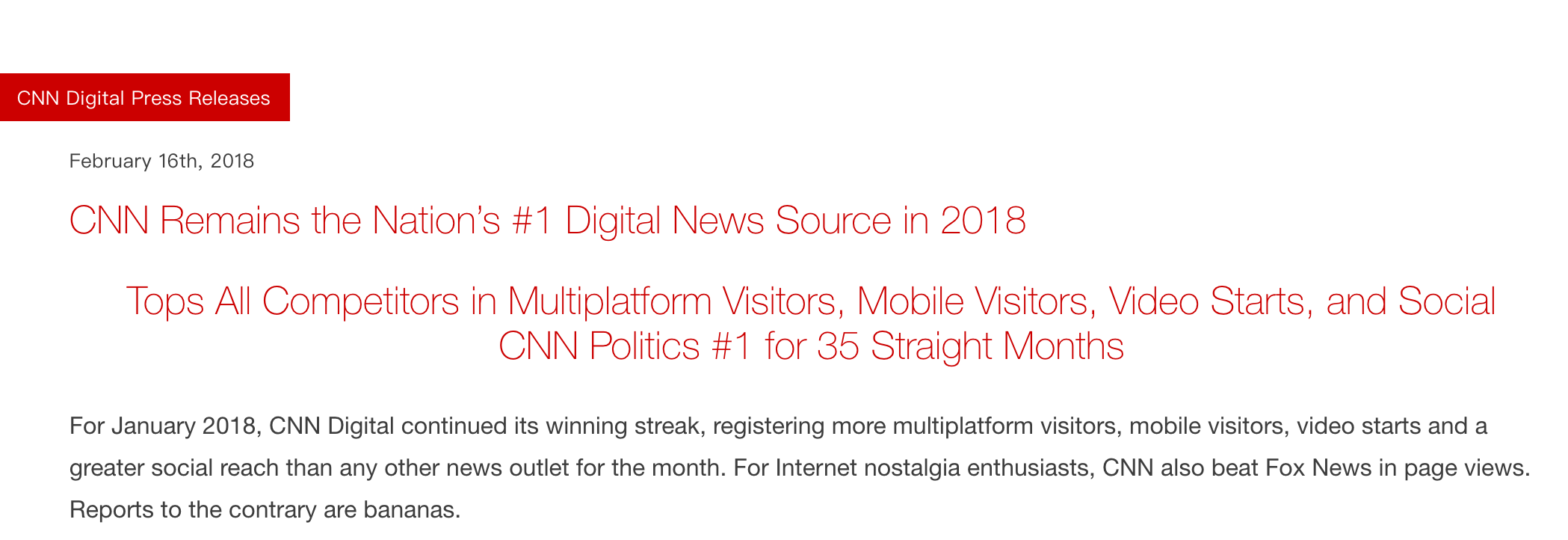
The statistic from similarweb.com also proved that mainly 64.65% of traffic resources comes from the desktop directly, while only 6.09% of traffic resource is coming from social media.
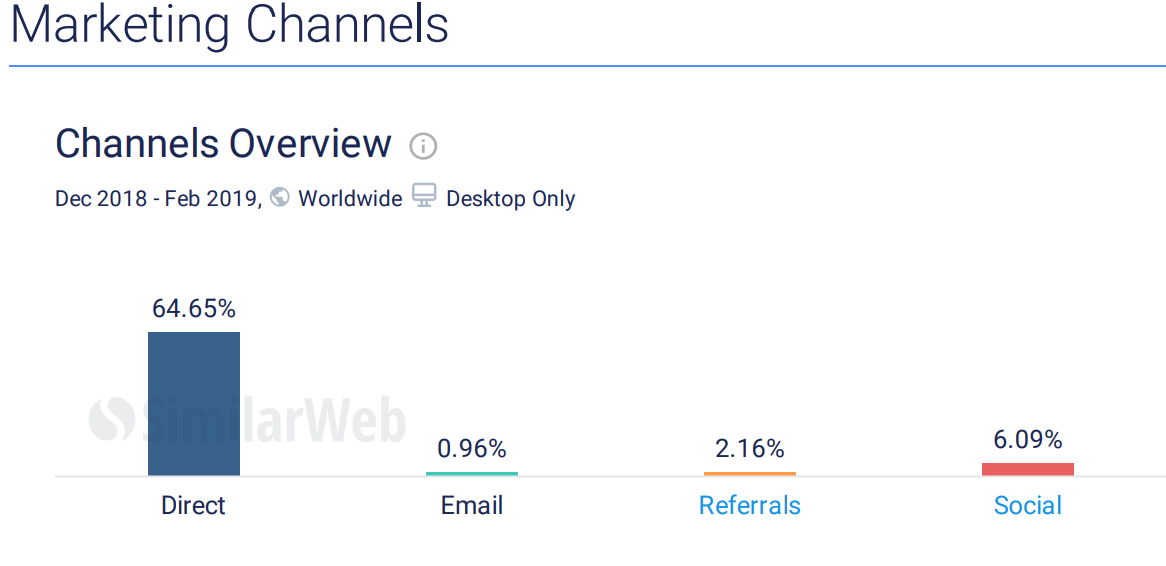
Above all, we can find that CNN has a large number of stable customers and mainly white-collar workers who own their own offices and desktops. And those kinds of customers need an open global perspective and are more concerned with the deep thinking behind the information than the news stories themselves.
BuzzFeed News: social media users
Although some traditionalists in journalism depreciate the reputation of BuzzFeed, News, there is no doubt this new media has built up a successful business model in recent years. It has a close relationship with social media platforms especially twitter and facebook.
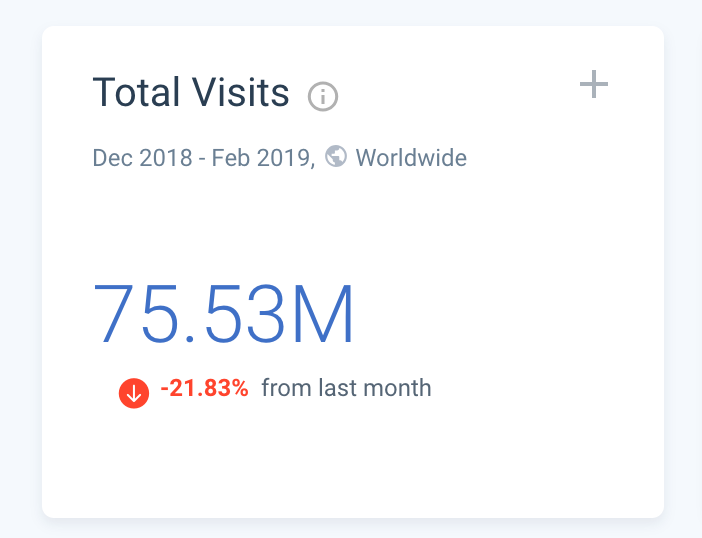
From the statistic supported by similarweb.com, it has a smaller group of audiences than CNN with only 75.53 million visits in last 6 months and 49.40% of them came from other referrals instead of visiting the website directly.
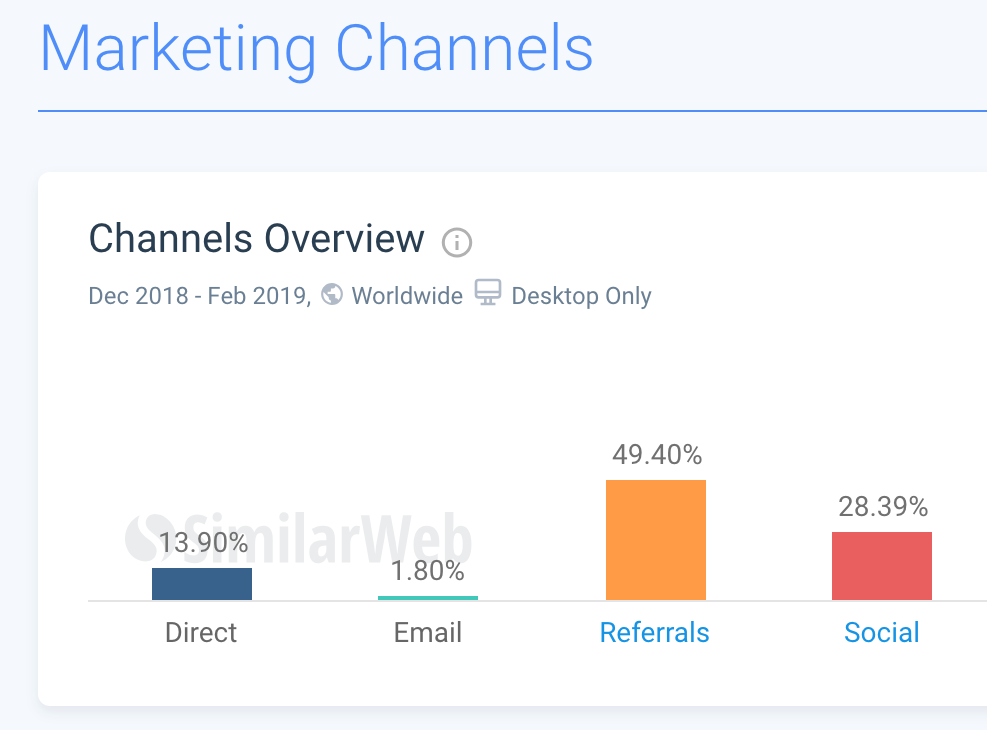
A report in 2018 from DMR also showed that 70% traffic of this news website came from mobiles and 42% was from social media which is quite different from the audiences demographic of CNN.

From those statistics, we can see the most audiences of BuzzFeed News are the users who are familiar with those social media platforms and they care more about the timing and entertainment value of that news.
Journalism writing and content
According to Anderson(2014), the analysis theory of content is kind of color-coded system which is similar to the news values, including comprehensibility, context, causality, comparativeness, comprehensiveness, and accuracy.
CNN: Professional News Writing.
In this news, the two authors of this news mainly reported the situation of the disaster scene after the crash according to chronological order. They adopted a lyrical language, on the one hand, they emphasized the suddenness of the air crash in an objective side, on the other hand, reflected the sorrows caused by the air crash to the victims’ families and allows the audiences to feel the same in a subjective side. The content of this report was understandable, comprehensiveness and accuracy and this kind of news can meet curious audiences by providing meticulous coverage of this hot events.
For example, the language they used to describe the feeling of their family. The sentences they use here are very lyrical with rhetoric and other rhetorics.
Their papers and plans swirl into the air in gusts of hot wind — blowing beyond the boundaries of the crash site, marked with yellow police tape.
They also tried to through detailed descriptions of relevant personnel to increase the appeal.
Tadu Gerechu was tending his sheep when he heard the roar of the plane overhead. He said it seemed in trouble, with flashes of flames coming out of its back.
BuzzFeed News: Combined the information from Twitter to make News
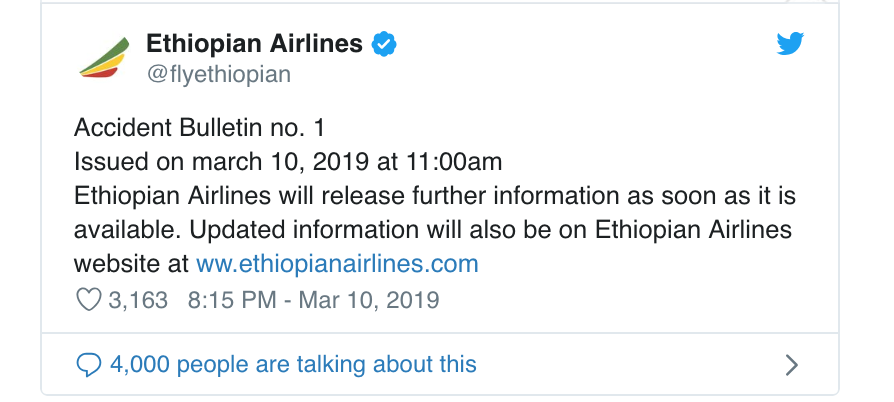
As the tradition of BuzzFeed, the most sources of this story came from Twitter and the whole news looked like a list which combined with those twitters’ content.
With many directly shared links with the specific content of the twitter, the story was broken into several apart and each part only has one or two sentences which could be easy to follow.
Online delivery
Writing for the web in the age of the internet can be a little bit different. As Bradshaw mentioned, the basic principle for a web news writing contains brevity, adaptability, scannability, interactivity, community or conversation. Besides, there are many important content strategies for online journalism, for example, linking essential information correctly and using multimedia platforms to tell a story.
CNN: Multimedia use

For links, there are two links in the article, one is a link for extra information about this airline and another is a link to a video about victims. They are all in a suitable place and it is needed for further understanding of this news.
For imagines, firstly, at the top of this news, they put a video made by CNN to explain the rescue situation at the moment for the crash events which can be a background for the articles and the sentences the journalist used in the video also be used in the article.

Then, four photos are used following the narrative order of the texts. One is about the investigators and the rest is about the family mourns. The pictures and article content complement each other. And more importantly, they add clear explain for imagines.

Photograph: Wang Xi/China News Service/VGC/Getty Images
For example, use texts under the photo to tell audiences where was the photo was taken, who were in the photos and what were they doing.
BuzzFeed News: Multiplatform use and not so accurate with its links
For links, I think some links in this story is not so suitable and sometimes make the reader confused and what’s more, most of its links go to another platform to provide more specific content towards this event, such as Twitter and Facebook.

Firstly, some links are too long, like”lion air passenger plane that crashed”, I do not think the reader will like this long link and it can be changed into “plane” only.

Then, the writer also put some link in verbs that may make the reader feel confused, such as “said” and “shared”. Maybe the writer wants to let the reader go to those twitter more conveniently, but I think she can put those link under the author instead of the verb.
And what’s more, I think they can put links to help the reader understand to some unfamiliar professional words like “ Nairobi-bound” and “flight 302” to help the reader get more information about this airline such as structure.
As for imagines, the position of the images in this article is suitable and they indeed let the reader follow the attitudes from several main responsible parties. However, I think the writer can give more information about the two other news photos to let the reader know what happens on the pictures.

Technical analysis
CNN: Traditional

CNN seems to pay little attention to this aspect. There are links for sharing under the title and this is the only place you can find to have some interaction with this website. Readers cannot contact with the reporters and they cannot make comments after reading.
BuzzFeed News: User-Friendly
In this part, this website did better than CNN. At the top of the article, there are links for sharing followed the title and after the subtitle, but there are other links for the reader to share again. This is useless.


And at the bottom of this story, to encourage the interaction between reader and reporter, there is a brief introduction of this reporter and call for people to contact. But the information towards the authors can be repeated.

Also, there are comments space at the bottom of this website for readers to post their attitude.
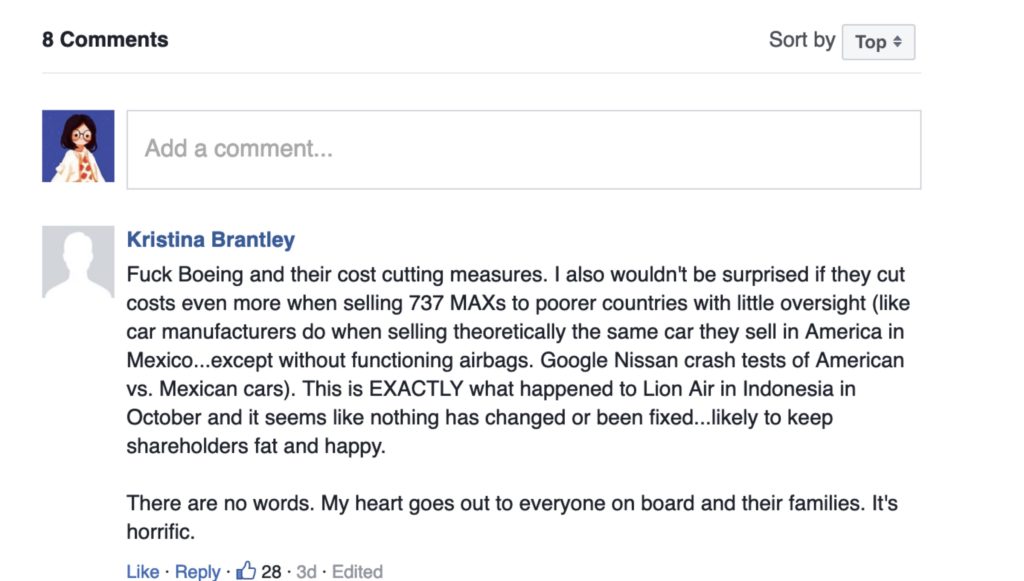
And All link on this story goes to the right places and really works. But the adds behind the article can be annoyed sometimes.

Conclusion
Obviously, CNN’s report is more like a formal news writing, close to white-collar workers and educated class reading. The BuzzFeed News report is like the sharing of open information on other online platforms, and it is more entertaining.
Reference:
Allen, C. (2016). That’s the Way It Is A History of Television News in America. The Journal of American History. Oxford University Press. https://doi.org/10.1093/jahist/jaw126
Anderson, P., Ogola, G., & Williams, M. (2014). The future of quality news journalism : a cross continental analysis. New York: Routledge.
Bradshaw, Paul (2017) The Online Journalism Handbook Skills to survive and thrive in the digital age, 2nd Edition.Routledge, Oxon. ISBN 9781138791565 (In Press)
Halliday, J. (2013, Jan 07). Media: 11 things you must know about BuzzFeed: The social news website has just raised about $20m and is set to open in the UK. The Guardian Retrieved from http://ezproxy.library.usyd.edu.au/login?url=https://search-proquest-com.ezproxy1.library.usyd.edu.au/docview/1266790704?accountid=14757
O’Leary, M. (2014, 04). BuzzFeed and the new vitality. Information Today, 31, 20-21. Retrieved from http://ezproxy.library.usyd.edu.au/login?url=https://search-proquest-com.ezproxy1.library.usyd.edu.au/docview/1564441854?accountid=14757
Rieder, R. (2015, Jun 16). BuzzFeed bites into the news. USA Today Retrieved from http://ezproxy.library.usyd.edu.au/login?url=https://search-proquest-com.ezproxy1.library.usyd.edu.au/docview/1688796617?accountid=14757





Be the first to comment